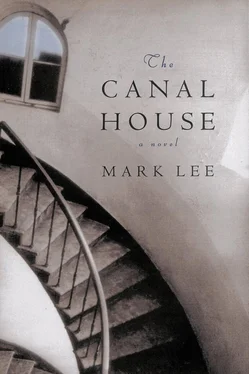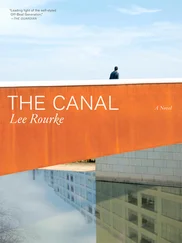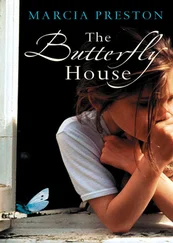If Daniel had been in New York or London during this period, he could have easily become a fifteen-minute celebrity. Instead, he stayed hidden and the media forgot about him. Magazine articles about Paul Rosen began to appear a few weeks later. I read about his wealthy family, prep school, Yale, and an attempt to play professional tennis. Paul had gone through a nightclub period in New York before a trip to Africa had inspired him to work for wildlife conservation. The articles reprinted one of my photographs of Paul and Tobias standing beside the Cessna.
The American embassy in Kampala said that as far as it knew Daniel McFarland had left Uganda. I assumed that he had returned to Rome because someone had gone to the Stampa Estera and picked up his mail. Everyone sent Daniel letters, faxes, and e-mail, but he didn’t respond. His Italian cell phone had been switched off and the answering machine on his desk at the Stampa Estera was disconnected. It began to feel like he had died along with Paul and the others.
I sent faxes and e-mail to the U.S. State Department, but no one there wanted to negotiate with the Lord’s Righteous Army. Finally I called the German embassy in Khartoum and talked to the commercial attaché. Using his contacts with the Sudanese military, he’d made a deal with Samuel Okello and exchanged two truckloads of food and medicine for the hostages. The moment they were set free, the American secretary of state held a news conference and tried to take all the credit.
The people who couldn’t contact Daniel called me. It was painful to talk to Paul Rosen’s mother and Joan’s eldest daughter. They wanted to speak to the person who had spent the last few minutes with their relatives. Was Paul happy? Did he mention his family? What did Joan say before the plane crashed? I mumbled my condolences and promised that I’d pass on their questions to Daniel.
Even Richard Seaton called, twice. He wanted to talk to Daniel and was curious about why he had disappeared. “Does he need medical care, Nicky?”
“I don’t know. Probably.”
“How about a psychiatrist? I know a good one here in London.”
“If I see Daniel, I’ll mention it to him.”
“If you know that he’s actually in Rome, call Billy and he’ll make all the arrangements. You can fly down there in my jet.”
CARTER OFFERED ME an easy assignment—taking photos at a war crimes trial at The Hague—but I turned him down. I had to know if Daniel was all right so I took a short vacation and flew down to Rome. I left messages on Daniel’s answering machine at Bracciano, but he didn’t return my calls. Not knowing what else to do, I went to the Vatican and stared at the Pietà with the other tourists. Later that afternoon I dropped by the Contessa’s apartment on the Piazza Navona.
I had to wait in the lobby for about twenty minutes until the doorman let me go up. Wearing a silk bathrobe, the Contessa stood in the doorway and blew cigarette smoke in my direction.
“I don’t know where Daniel is, Mr. Bettencourt. He hasn’t called.”
“He was in a plane crash in Africa. Three people died.”
“Yes. Some British friends of mine read about it in the newspaper. Perhaps Daniel is alive. Perhaps he is dead. When selfish people disappear, no one really cares.”
I looked down at her red toenails and little green sandals. “If you see Daniel would you tell him that I’m staying at the Hotel Centro.”
“I’m not going to hear from him and you won’t either. Don’t waste your time, Mr. Bettencourt. Go home, if you have one.”
Eating dinner that night, I decided to rent a car and go out to Bracciano. I didn’t know exactly where Daniel’s farmhouse was, but I thought I’d drive around and ask questions. When I got back to my hotel, a phone message was waiting for me: Domani. A mezzogiorno. Convento Santa Maria dei Sette Dolori .
“Who called? Was it Mr. McFarland?”
“It was a man, dottore . But he did not say his name.”
“And I’m supposed to meet him tomorrow afternoon at a convent?”
“ Sί, dottore . It’s in the Trastevere district.”
“What’s a man doing at a convent?”
The desk clerk gave me a big smile. “I don’t know. But he speaks very good Italian.”
After a bad night’s sleep I drank a double espresso with four lumps of sugar and crossed the Tiber at the Ponte Sisto. It was early autumn and the rains wouldn’t arrive for another month or so. The Tiber had a muddy brown color and the leaves on the sycamore trees were curling up at the edges like thin pieces of paper. Strolling through the narrow streets of Trastevere, I found the tailor’s shop that had transformed me, for one night, into an English gentleman. The same dummy was in the window with the same dusty bolt of cloth.
I walked west on the Via Garibaldi, a narrow cobblestone road that curved up the slope of the Janiculum Hill. On the left side of the road there was a small courtyard filled with Fiats and a few scooters. The church of Santa Maria dei Sette Dolari looked like a shabby Gothic castle with bars on the lower windows. I could see that plaster had once covered the brick facade, but most of it had fallen off hundreds of years ago.
The building had three marble archways framing wooden doors. Two of the doors led into a shadowy church. The third door was about twenty feet away and I assumed that it led to the convent. I knocked once, twice, then waited for several minutes. Finally the door creaked open a few inches and I encountered an elderly nun the size of an eight-year-old child.
The nun saw the camera hanging from my shoulder and assumed that I was a tourist. “ No ingresso ,” she said firmly and tried to shut the door on my foot.
“I received a message at my hotel. A man said—”
“ No ingresso! ”
“I’m looking for Daniel McFarland.”
“Ahhh. Signor Daniel.” The little nun smiled as if I had said some magic words. She opened the door completely and gestured for me to come in.
I followed her into a covered walkway surrounding a garden. All the doors were open and I could see into the nuns’ rooms as we passed them: a narrow bed set in the wall of the cubicle. A writing desk. A crucifix. A single chair. My guide glanced back to make sure that I was following her, then led me through the colonnade and into the garden. Generations of visiting relatives had left potted plants and flowers that had been placed in the courtyard’s moist soil. It was a jungle of mismatched plants, the kind of place where marigolds and tomato vines fought a murky battle with calla lilies.
I smelled Daniel’s cigarette first. The little nun led me around a ficus bush and we found him sitting on a marble bench. Daniel had cut off the long brown hair that had looked so stylish at the Contessa’s party. His left forearm was in a cast and there were stitched-up cuts on his face. He looked tired and shaky, like a soldier who had survived an artillery barrage. After ten years of covering wars without a single injury, it seemed as if all the pain and confusion of those experiences had finally touched him.
Daniel stood and shook my hand. “Hello, Nicky. Good to see you again.”
“What the hell are you doing in a convent?”
“Smoking.” He sat down on the bench and I joined him. “Actually, I’ve been living here for the last two weeks. I don’t like Bracciano these days. It’s too exposed and there’s too much sunlight.”
“So you just knocked on the door and the nuns let you move in?”
“When I came back from Africa I made a contribution to the order’s hospice. The mother superior asked if I wanted the nuns to pray for me, but I told her I’d rather stay here for a few weeks. It’s worked out all right. They’ve gotten used to having me around.”
Читать дальше












